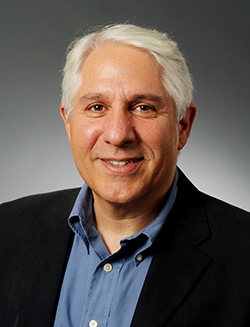 An academic website dedicated to measuring the impact of some of the world’s top academic influencers has named George Mason University’s David Weisburd as the second-most influential criminologist of the last decade.
An academic website dedicated to measuring the impact of some of the world’s top academic influencers has named George Mason University’s David Weisburd as the second-most influential criminologist of the last decade.
Academic Influence cited Weisburd’s “meaningful research into white-collar crime, as well as the micro-geography of crime,” as well as his studies exploring crime hot spots in cities such as Baltimore, Seattle, Tel Aviv and Jersey City. Weisburd has advocated for more intentional distribution of police coverage in areas of criminal hot spots. More recently, he has developed strong basic research for the National Institutes of Health that points to the potential use of social rather than police interventions to reduce crime at crime hot spots. This approach could help strengthen police-community partnerships and minimize unnecessary intrusions of state power. In his new book, “Talking to Strangers”, Malcolm Gladwell summarizes Weisburd’s contributions, saying that “they capture something close to a fundamental truth about human behavior.”
The honor is the latest in a long line for Weisburd, a Distinguished Professor and the executive director of the Center for Evidence-Based Crime Policy in Mason’s Department of Criminology, Law and Society within the College of Humanities and Social Sciences.
“It’s a real compliment to be on this list,” he said of the latest recognition. “I am glad to get this recognition for myself, and for the department and the university.”
Weisburd was the recipient of the highest award in the field when he received the 2010 Stockholm Prize in Criminology. He’s also been previously honored with the Sutherland Award (2014) for “outstanding contributions to the discipline of criminology” and the August Vollmer Award (2017) for contributions to the prevention of crime, among other accolades.
“He’s a pioneer,” said James J. Willis, chairman of the Department of Criminology, Law and Society. “He set a new paradigm in Criminology, Law and Society. I’m constantly thrilled to hear about the awards he receives because they are well-deserved. Weisburd’s visibility inside and outside academia helps to get the message out regarding the growing influence of our department. It brings honor and recognition to us, the College, and to Mason.”
Weisburd was joined on the list by a former student in the University of Queensland’s Lorraine Mazerolle, who ranked No. 7.
“It’s good that that not only I ended up on this list, but so did one of my students,” Weisburd said.
The rankings of the 25 most influential criminologists were comprised of academics working in criminology whose ideas have significantly impacted the academic discipline of criminology and criminal justice from 2010-2020.
